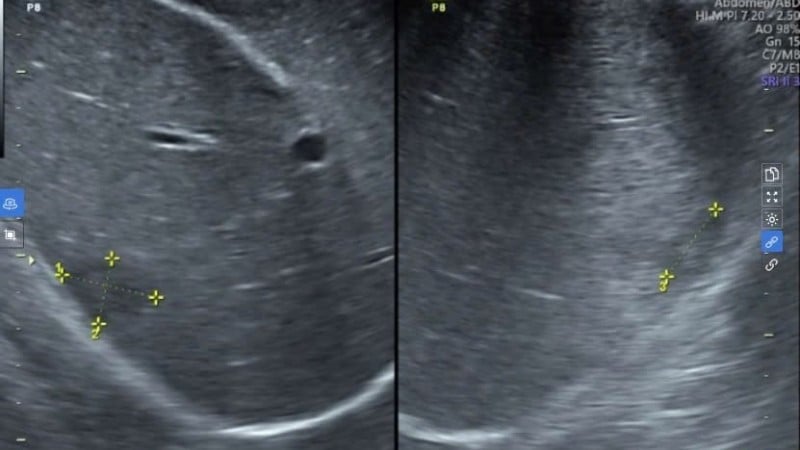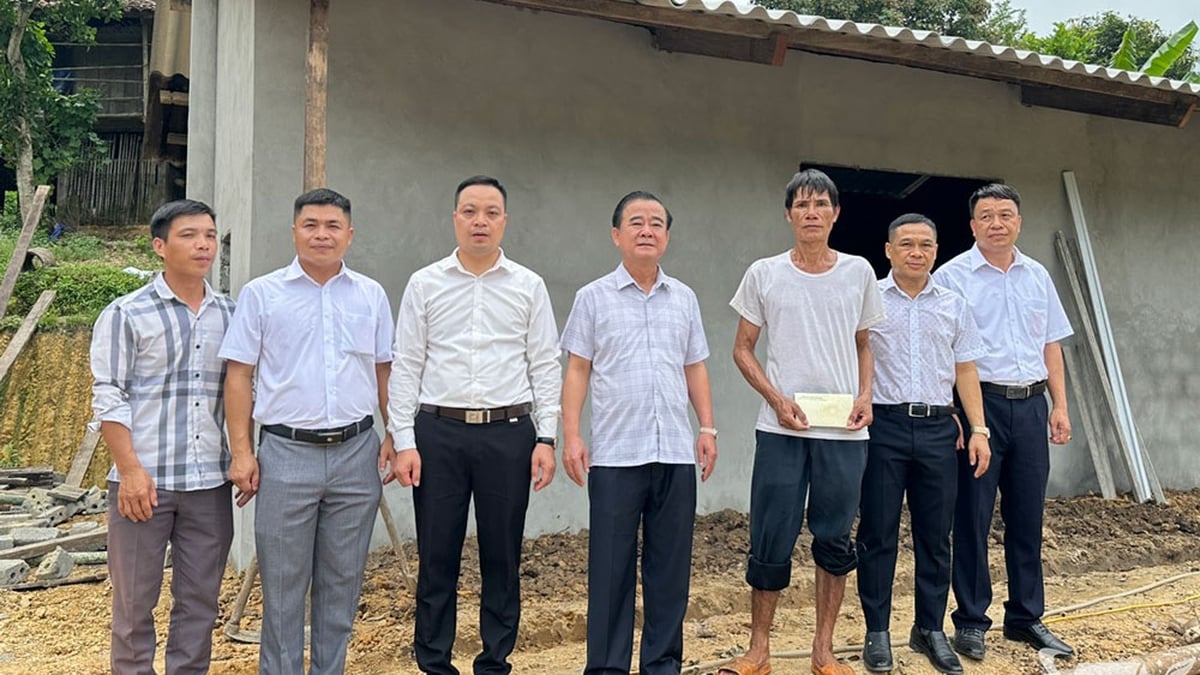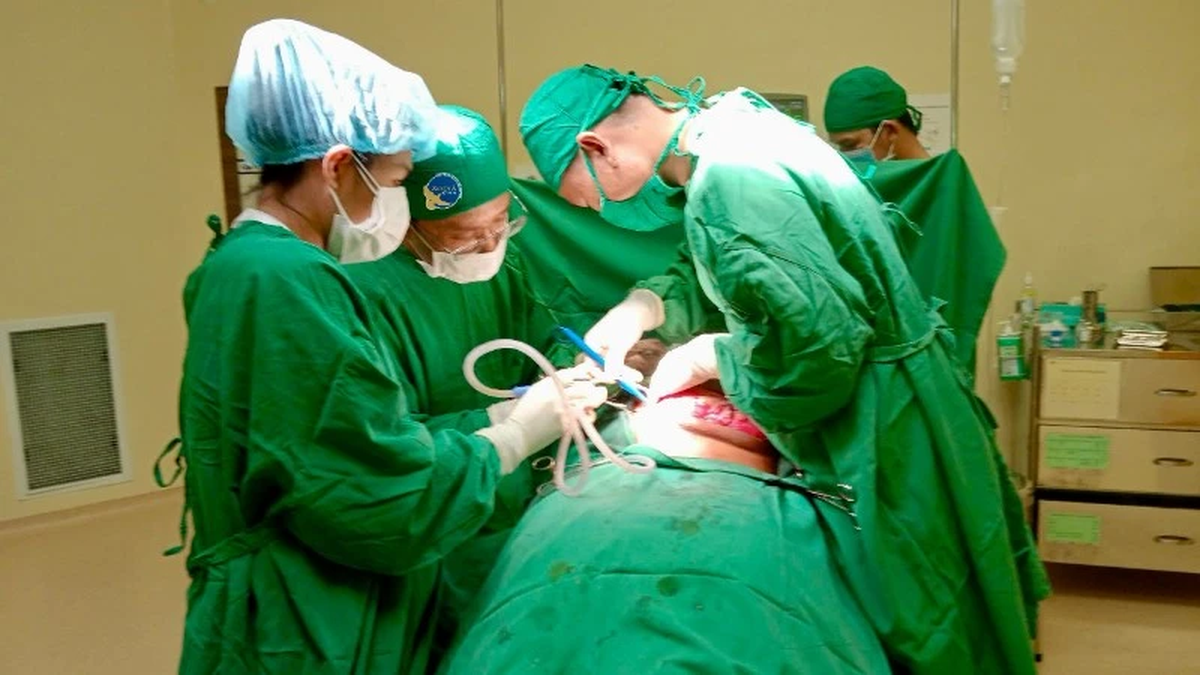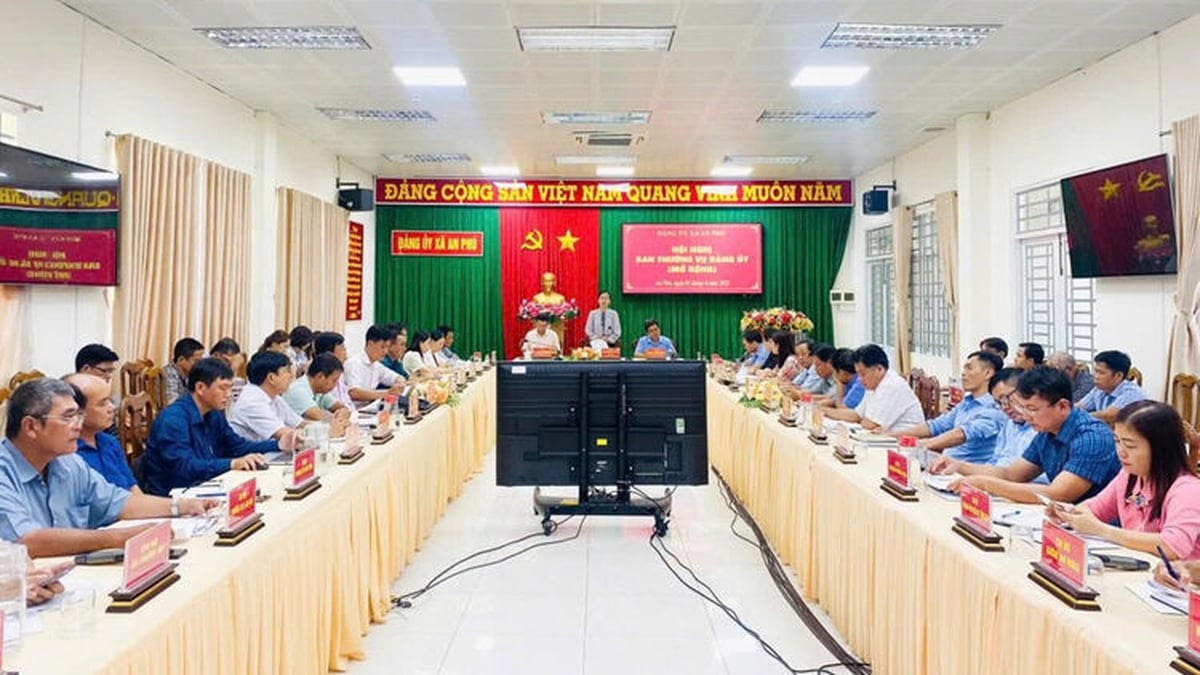
Ms. HTDV, 23 years old, said that 1 week ago, when she went to the doctor, she had a dull pain in the right epigastric region, causing a feeling of tension and discomfort. The pain did not radiate, and the pain increased when coughing, breathing hard, or turning to the right. Ms. V. suspected that she had a stomach ache, so she went to the doctor for a check-up. In addition, Ms. V. added that she had a habit of eating raw vegetables.
Approaching the patient, taking medical history, risk factors and directly examining her, Dr. Nguyen Thi My Le, Internal Medicine specialist, Medlatec Go Vap General Clinic, Ho Chi Minh City, ordered Ms. V. to do some blood tests (blood count, blood biochemistry, ELISA to detect parasites), stool tests and some diagnostic imaging tests (ultrasound, liver CT).
The patient's results showed that the patient had a high eosinophil count, and there were IgG antibodies of the liver fluke in the blood. Abdominal ultrasound detected a mass in the liver measuring 39x18x20mm with unclear boundaries, no Doppler signal, close to the liver capsule, and did not push the surrounding structures. The CT results were consistent with the image of liver damage caused by parasites (liver flukes).
From the results of epidemiological factors, clinical examination and testing, Dr. Le concluded that the patient had a liver abscess caused by large liver flukes in segment VII, size 20x39mm, stable stage, no rupture complications.
After 1 month of treatment, Ms. V.'s epigastric pain subsided, her BCAT returned to normal, and the liver lesion significantly reduced in size on ultrasound. At the same time, Ms. V. was advised by Dr. Le to return for a check-up and do tests to monitor the treatment results.
From Ms. V.'s case, Dr. Le shared that parasitic diseases in general, and liver fluke disease in particular, have symptoms that are easily confused with gastrointestinal diseases, digestive disorders, etc. If overlooked, it can cause the patient to miss the "golden time" for treatment, as well as lead to dangerous complications that threaten life.
Currently, by clinical examination, epidemiological history, serological tests, stool tests and imaging techniques, it is possible to confirm the diagnosis of patients infected with large liver flukes.
Liver abscess caused by large liver flukes can lead to life-threatening complications if not controlled promptly such as pleural effusion, heart failure, peritonitis, or gastrointestinal bleeding. In addition, large liver flukes can also parasitize in many different locations in the body, causing lesions that are difficult to diagnose.
Clinical symptoms of fascioliasis are often nonspecific and easily confused with other digestive diseases. Therefore, those living in endemic areas, with a history of eating raw aquatic vegetables and drinking unsanitary water, and with clinical signs of fascioliasis should undergo blood and stool tests and imaging to confirm the diagnosis.
According to Dr. Le, large liver fluke larvae ( Fasciola hepatica or Fasciola gigantica ) are often found in aquatic vegetables such as Vietnamese coriander, celery, water spinach, watercress... that grow in ponds, lakes, and canals.
During daily life, people who have the habit of eating raw vegetables, undercooked vegetables, and drinking unboiled water may ingest live larvae (cysts) and become infected with large liver flukes. Eating raw vegetables and drinking unboiled water can also transmit many other types of worms such as dog and cat roundworms, pork tapeworms, roundworms, whipworms, hookworms, etc.
Large liver flukes when parasitizing in the human body can cause: Hepatitis, pain in the right hypochondrium; liver abscess formation (if not detected early); prolonged fever, fatigue, weight loss, anemia; severe cases can lead to ruptured liver abscess, peritonitis, pleural effusion...
To prevent infection with large liver flukes, Dr. Le advises people to take the following scientific dietary measures: Do not eat raw vegetables, especially aquatic vegetables growing in stagnant water; eat cooked food, drink boiled water, wash hands before eating and after going to the toilet; wash vegetables directly under the tap, dip (blanch) in boiling water before eating; deworm periodically every 4-6 months according to the doctor's instructions.
If you have symptoms of liver pain, digestive disorders, or unexplained prolonged fever, you should see a doctor early and receive timely treatment to avoid dangerous complications.
Source: https://nhandan.vn/den-kham-vi-dau-da-day-ta-hoa-phat-hien-co-san-la-gan-lon-post898697.html


































































































Comment (0)